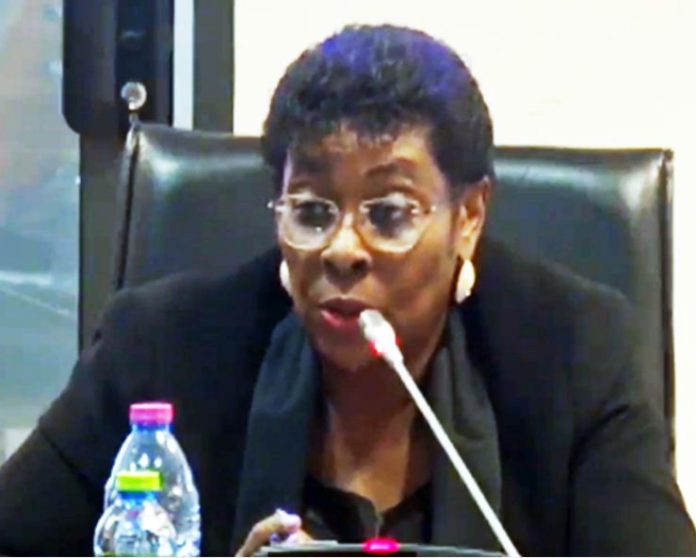A Supreme Court Justice nominee, Justice Bernasko Essah, has underscored the need for the Judiciary to maintain high ethical standards to regain public trust and confidence.
Appearing before the Appointments Committee of Parliament on Tuesday, August 13, 2024 to answer questions relating to the position she has been nominated for, by President Nana Addo Dankwa Akufo-Addo, Justice Essah stressed that public confidence and independence are critical pillars of the law. Therefore, any action undermining these pillars would greatly affect the Judiciary’s authority.
“We as a body must set a high standard of compliance and monitoring of our legal ethics code. We must make sure that we deliver judgments promptly. We must be decorous. We must behave in a manner which is transparent in order to gain public confidence.
“Because, Hon. Chair, our authority lies in sustained public confidence. And public confidence and independence are the key pillars of the law and so we cannot compromise on it”, she noted.
Her comment was in response to a question posed by the NDC MP for Adaklu, Kwame Governs Agbodza, who sought her views on a 2020 Afrobarometer report, which revealed that 85% of Ghanaians perceive the Judiciary as corrupt.
Even though she acknowledged the concern as revealed by the report, she noted that the percentage scored by Afrobarometer was on the high side since the Judiciary has undertaken a number of measures to sanitize the institution.
Commenting further, Justice Essah declared zero tolerance for corruption and outlined a number of measures the Judiciary is currently undertaking to complement other measures to reform the institution.
These include setting up a complaint unit and digitizing the entire court systems throughout the country.
“There should be zero tolerance for corruption and the judiciary is doing a lot – we have the complaints unit where people come and report incidents which are investigated and recommendations sent to the Administration and when it is found to be true, the culprits are dealt with swiftly and decisively.
I would also say that we are progressively digitizing the courts in the whole country and it will help significantly to curtail face-to-face interactions with the judiciary service staff. We will be dealing more with machines – e-filing, e-processing, e-billing, e-request for documents and that would help significantly”, she explained.
She emphasised that the Judiciary must prioritise transparency, accountability and integrity to maintain public trust and pledged to uphold the highest ethical standards if confirmed as a Supreme Court Justice.
By Stephen Odoi-Larbi








